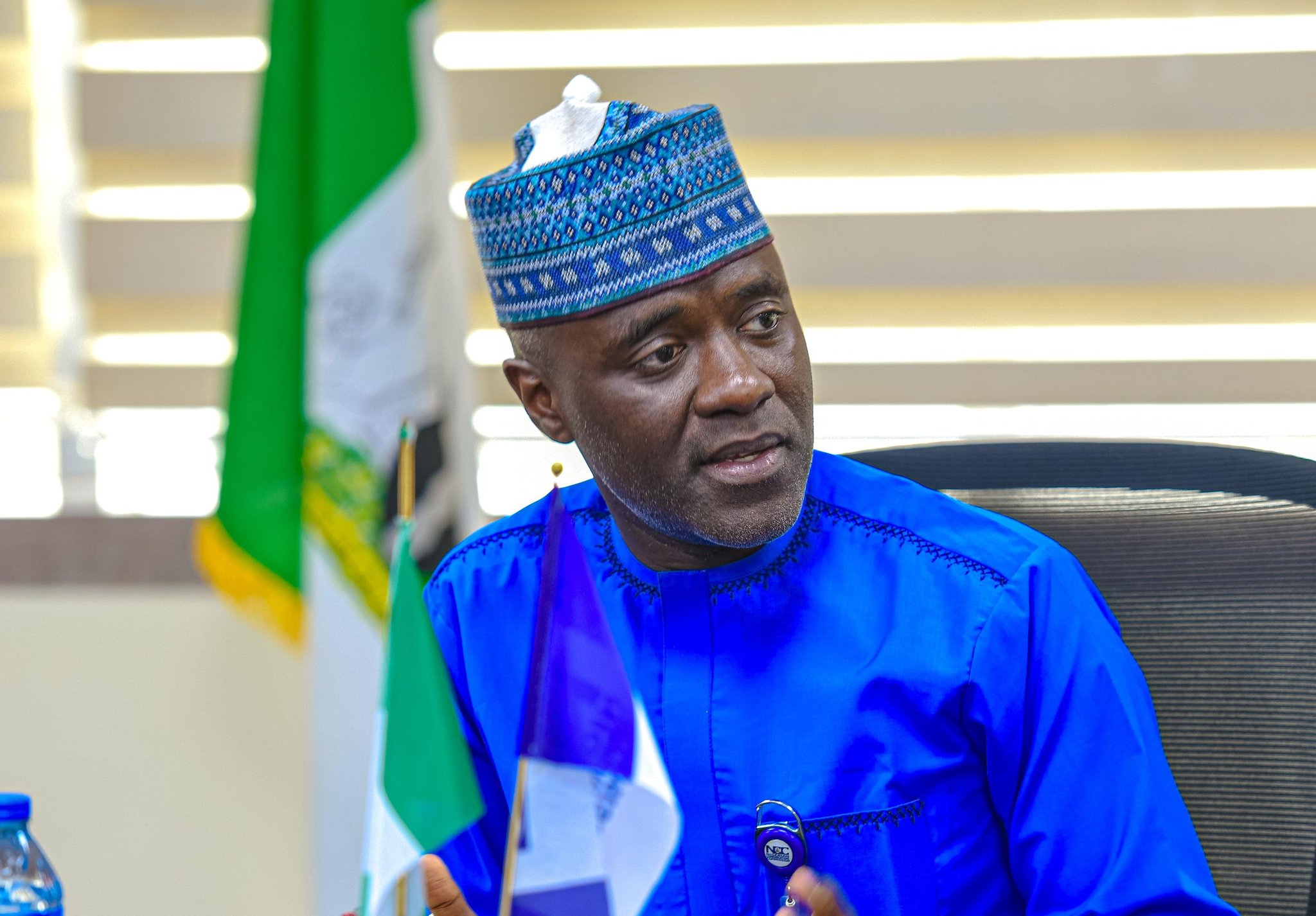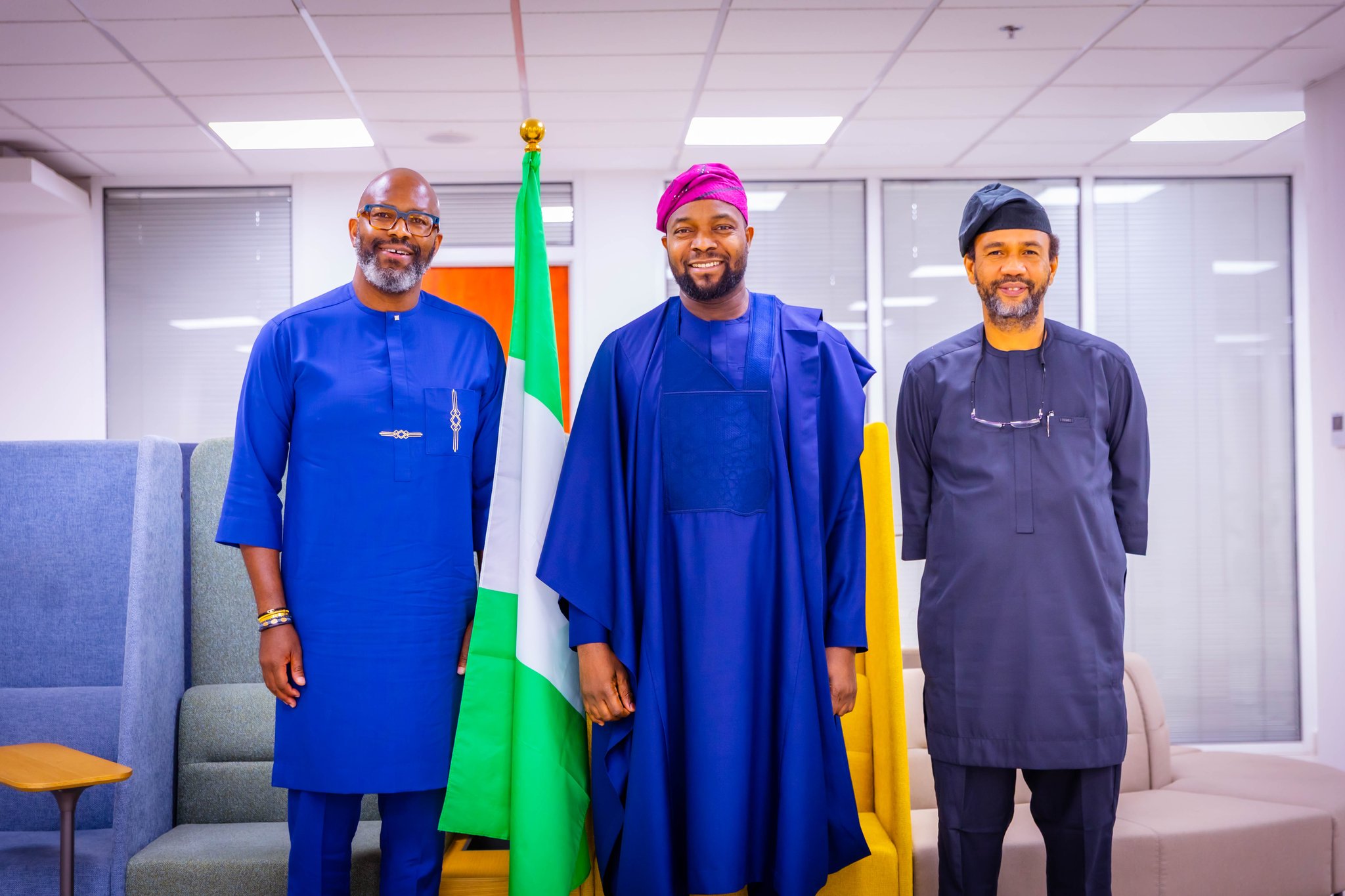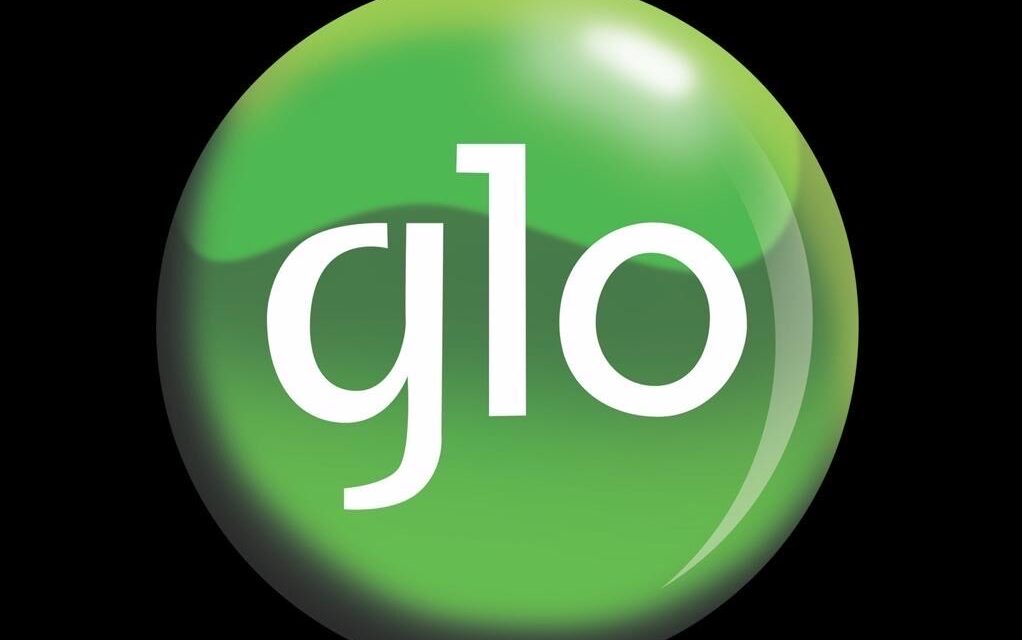NCC Boss, Aminu Waida’s Bold Move To Drive Telecoms Industry Sustainability
MICHAEL AKINOLA

Since his appointment on October 11, 2023 by President Bola Ahmed Tinubu as the substantive Executive Vice Chairman/Chief Executive Officer of the Nigerian Communications Commission (NCC), Dr. Aminu Waida has been mapping out a more sustainable and inclusive telecommunications industry.
The NCC, under Waida, has also been driving the agenda of implementing strategic initiatives aimed at aligning Nigeria’s telecom sector with global Environmental, Social, and Governance (ESG) standards.
Taking the lead in attaining these objectives of the renewed vision for sustainable telecom, insiders, revealed that Maida has adopted a multi-pronged approach. The former Executive Director, Technology & Operations at Nigeria Inter-Bank Settlement System Plc (NIBSS) —where he oversaw the operations of the entire payments infrastructure of Nigeria— has stressed the critical role of corporate governance in achieving industry sustainability. A position he publicly proclaimed with the declaration that, “Corporate governance is not just a regulatory requirement; it serves as the foundation for the success and sustainability of our industry,” at the 2024 Annual Corporate Governance Conference themed “Corporate Survival and Sustainability: The New Face of Governance.”
Maida insists that sustainability reporting provides stakeholders with insights into how telecom operators manage risks and opportunities related to sustainability.
The cornerstone of this sustainability agenda —aimed at fostering a telecom environment that is not only economically viable but also socially responsible and environmentally conscious— is the Corporate Governance Code. The Commission mandates its licensees to submit annual compliance reports, with non-compliance attracting sanctions. In taking a hard stance on compliance, sources said that Maida is determined to hold operators accountable.
The NCC’s posture, it is gathered, aligns with Nigeria’s broader commitment to adopting International Financial Reporting Standards for environmental and climate-related disclosures, aiming for full compliance by 2027.
As part of efforts to boost digital inclusivity, the NCC launched the National Broadband Alliance for Nigeria (NBAN), targeting a broadband penetration rate of 70% by the end of 2025.
The NBAN, which aligns with Nigeria’s National Broadband Plan (2020–2025), aims to provide minimum data speeds of 25 Mbps in urban areas and 10 Mbps in rural areas.
This ambitious move aims at expanding broadband access —pushing internet connectivity to underserved areas, including schools, healthcare facilities, and markets— through collaborative efforts with state governments, telecom operators, and infrastructure companies.
It is also learnt that the NCC is also promoting digital literacy to drive an inclusive telecommunications industry.
“Recognizing the importance of digital skills in socio-economic development, the NCC, through its Digital Bridge Institute, has partnered with institutions like Nile University to provide advanced digital literacy training,” an insider disclosed.
Programs such as the Advanced Digital Appreciation Programme for Tertiary Institutions (ADAPTI) aim to equip faculty and staff with essential digital competencies, including data analysis and productivity tools, as a result of such partnerships.
Additionally, the Commission’s Digital Job Creation for Youths (DJCY) program is said to have trained over 2,000 youths across Nigeria —providing them with laptops and networking devices to foster digital entrepreneurship in the push for an inclusive telecom sector.
Not left out of the NCC’s significant strides in laying the groundwork for a telecom sector that is resilient, inclusive, and aligned with global best practices is its concern for data security and combating fraud.
The Commission is said to be collaborating with the Central Bank of Nigeria to develop a robust framework to combat fraud in mobile financial services.
Maida is said to be keen on the need for stringent data protection measures because of the possible dire consequences breaches pose for both individual companies and the sector as a whole.
Also, in an out-of-the-box move, the NCC took the inclusivity agenda into healthcare.
In a significant step that seeks to address the needs of over 60% of Nigeria’s rural population lacking access to functional primary healthcare centers, the Nigerian Communications Commission (NCC) commissioned an e-Health Project at the State Specialist Hospital, Akure, Ondo State, in May 2025.
“This attests to our collective efforts to harness the power of Information and Communication Technology (ICT) to improve and revolutionise the health sector in Nigeria in a manner that better serves citizens,” Maida stated on the development that not only soared healthcare but boosted telemedicine in Nigeria—re-emphasizing that, “The completion of this e-Health Project is a testament to the Nigerian Communications Commission’s commitment to driving innovation, research, and growth in our nation’s digital economy.”
He went on to share optimism that the project would enhance the adoption of ICT in the nation’s health sector.
Perhaps the most telling for Nigerians across social cadres is the recent directive by the Commission that telecommunication companies should compensate subscribers for prolonged outages.
The NCC will be providing transparency through its Major Outage Reporting Portal.
“By providing consumers and stakeholders in the telecommunications industry with timely and transparent information on network outages, we are entrenching a culture of accountability and transparency. This approach also ensures that culprits are held responsible for sabotage to telecommunications infrastructure,” said Edoyemi Ogoh, NCC Director, Technical Standards and Network Integrity.
The development is expected to make the telecommunications companies —led by the big three: MTN, Airtel, and Glo —not just more responsible but also foster better rapport with their subscribers.
It comes on the heels of new billing regulations revamping the telecom industry.
After 12 years of unchanged tariffs, the Nigerian Communications Commission (NCC) approved a 50% increase (as the upper limit), amid challenging macroeconomic conditions, in January 2025.
The approved rate —which the Minister of Communications and Digital Economy, Bosun Tijani, attributed to global inflation and rising operational costs— was a reduction from the 100% initially proposed by the telcos under the banner of the Association of Licensed Telecommunication Operators of Nigeria (ALTON).
The tariff came into play on February 17, 2025.













